China's EV market: Rapid development amid slowing sales
Chinese automakers have made improvements in production and quality of electric vehicles (EVs), leading to a growing number of people who are purchasing EVs. However, convincing people to make the switch is not easy, as sceptics still have reasons for holding on to their fuel vehicles.
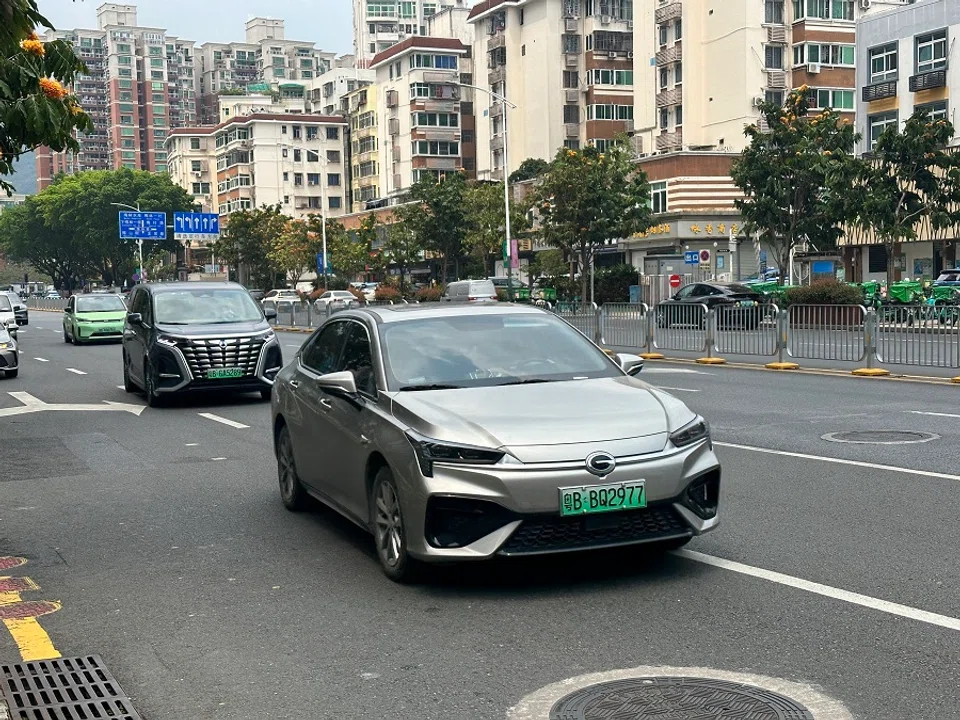
(Photos: Daryl Lim/SPH Media, unless otherwise stated)
Compared with other large Chinese cities, the roads in Shenzhen are unusually quiet. However, this is not due to fewer cars but because more people are driving electric vehicles (EVs), whose "quietness" is a prominent advantage over internal combustion engines.
As the headquarters of China's largest pure-EV manufacturer BYD, Shenzhen is one of the first Chinese cities to possess a fully electrified public transportation system. The city's EV penetration rate reached 67.9% in 2023, nearly double the national average of 35.7%.
The EV sector is an important pillar of China's economic transformation and also an important tool in achieving the country's "dual carbon" targets - to peak carbon emissions by 2030 and reach carbon neutrality by 2060. But to most consumers, driving EVs is more about saving on commuting costs.
Replacing fuel cars
Twenty-eight-year-old Deng Haowen, who works at a bar in Shenzhen, bought a BYD Dolphin EV for 122,000 RMB (about US$16,800) in 2021. He told me that he decided on an EV because charging an EV is cheaper than filling up on petrol.
Deng lives in Huizhou, Guangdong, and drives 200 kilometres to and fro Shenzhen every day. Based on his calculations, it costs 0.40 RMB/kWh to charge his EV at the charging station, an average of just 10 RMB per 100 kilometres. If he drove a fuel vehicle, the fuel cost would be at least 40-50 RMB.
Most car owners think that whether in terms of driving experience, smart technology, appearance or range, EVs meet their daily needs and have completely replaced fuel cars.
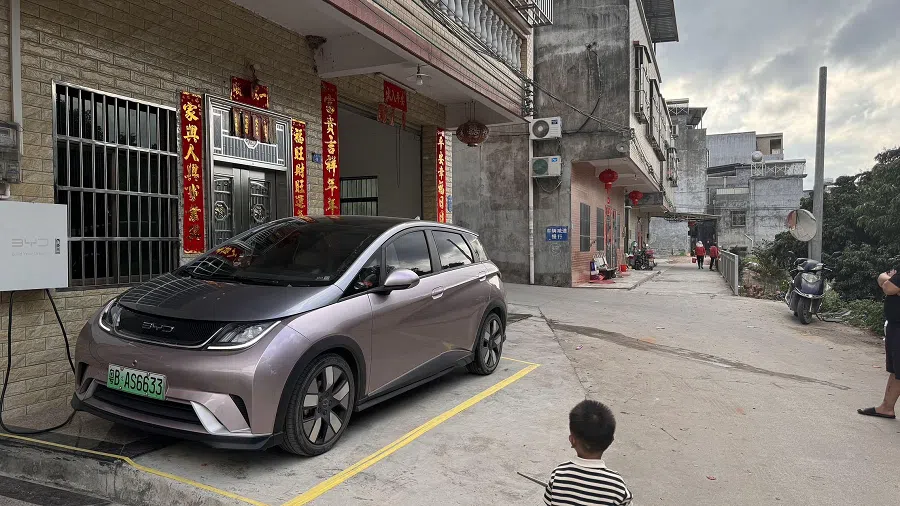
Deng is also enticed by the EV's ability to accelerate to 100 km/h from a standing start in just a matter of seconds. He said, "It only takes six seconds for my car to accelerate from 0 to 100 km/h. A fuel vehicle with the same performance would cost at least 400,000 RMB to 500,000 RMB. It feels great to enjoy the same driving experience at a quarter of the price."
Thirty-year-old Ruan Wenfeng, who works in advertising production, sold his fuel vehicle in 2020 and bought a Tesla Model 3 for 350,000 RMB. To him, the biggest advantage of an EV is that it is easier to maintain than a fuel vehicle.
He said, "In the past when I drove a fuel vehicle, I would have to maintain the car after every 3,000 kilometres. Apart from the first maintenance, the car also underwent several major and minor servicing in between. In comparison, I only have to service my EV after every 20,000 kilometres, which saves a lot of time and effort."
Most car owners think that whether in terms of driving experience, smart technology, appearance or range, EVs meet their daily needs and have completely replaced fuel cars. Unless there is a major change to their commuting needs, they will not consider fuel vehicles anymore.
... while China's new energy vehicles will maintain relatively strong growth this year, maintaining a growth rate of over 50% this year will be especially challenging, as convincing the remaining "EV sceptics" becomes a growing challenge. - Alvin Liu, Analyst, Canalys
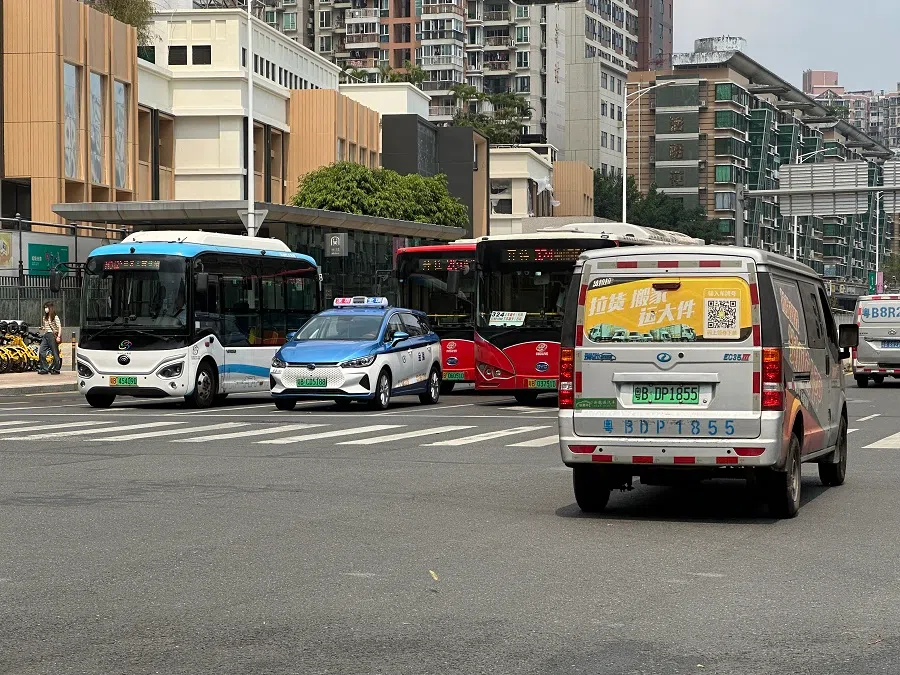
The rapid development of China's EV sector has frequently made the news in recent years, with the grand launch of Xiaomi's EV also attracting global attention last month. With strong official support and corporate promotion, China's EV sales are leading the world. However, as the Chinese market has reached a certain size, China's economy is slowing, and the country's EV sales growth has also slowed significantly.
Slowing growth
Statistics from the China Passenger Car Association showed that retail sales of new energy vehicles reached 7.736 million units in 2023, up 36.2% year-on-year, a far cry from the 90% a year ago.
Furthermore, in the first two months of 2024, China's new energy vehicle sales continued to slow. It was only in March that sales rebounded after automakers waged a price war.
Market analyst firm Canalys analyst Alvin Liu predicted in a report that while China's new energy vehicles will maintain relatively strong growth this year, maintaining a growth rate of over 50% this year will be especially challenging, as convincing the remaining "EV sceptics" becomes a growing challenge.
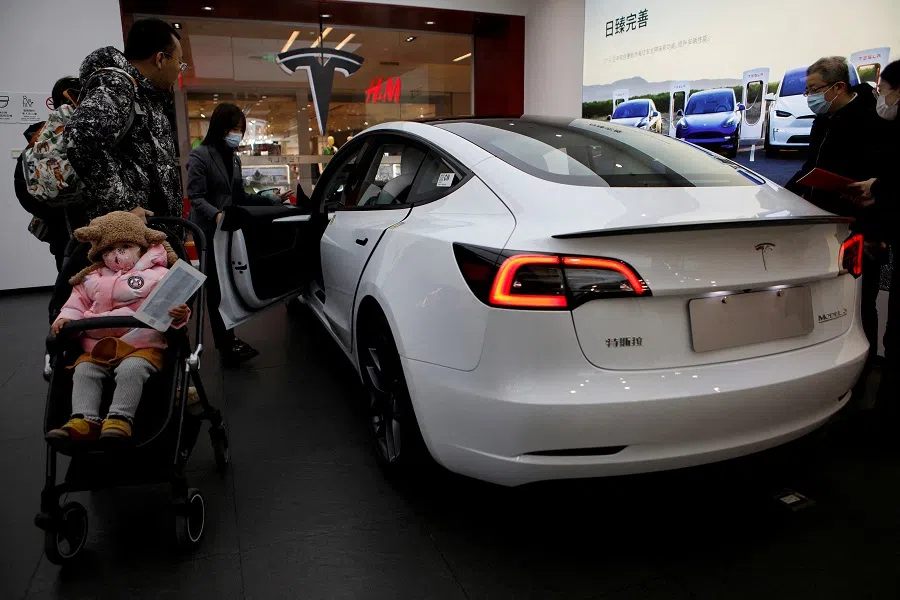
Thirty-five-year-old Shenzhen businessman Wu Rongsen is a self-proclaimed "EV sceptic", noting that range and charging concerns are the reasons why most people avoid buying EVs.
He said, "To businessmen, time is money. Even with the most advanced fast-charging technology, it still takes an hour to fully charge an EV. We don't have that kind of time."
As for the environmental benefits of EVs, Wu rebutted, "Doesn't the production process of lithium batteries for EVs and their subsequent disposal affect the environment as well?"
EVs not made for northeast China
The penetration rate of EVs in China also varies by region and degree of urbanisation.
In the three chilly provinces of northeast China, new energy vehicle sales accounted for only 4% of China's total last year. Many locals complained that EVs are not made for northeast China - the capacity of lithium batteries drops tremendously in extremely cold weather, greatly affecting the EV's range.
Compared with urban areas, the penetration rate of EVs in rural areas is also relatively low due to immature charging facilities, lack of awareness of new automakers and negative stereotypes of EV safety.
Since the entire sector is still facing an intense price war, such a shift to EVs would only occur after the price war and product competition have stabilised and the market has sieved out the fittest. - Lim Tai Wei, Adjunct Research Fellow, EAI, NUS
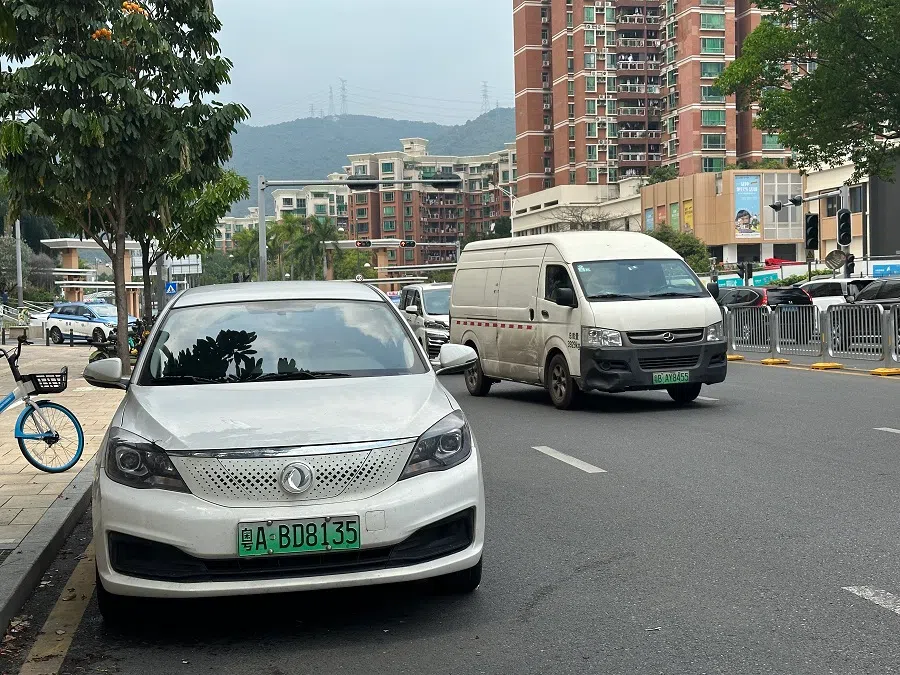
Figures released by the China Association of Automobile Manufacturers show that the sales of new energy vehicles in China's non-urban areas accounted for only 4% of total auto sales in rural regions in 2022, significantly below the industry-wide level of 25.6%.
Lim Tai Wei, an adjunct research fellow at the National University of Singapore (NUS)'s East Asian Institute (EAI), assessed during an interview with Lianhe Zaobao that the "hardcore fans" of new energy vehicles in China have generally switched to driving EVs. In the next phase, the sector would have to introduce more groundbreaking technologies, effective marketing strategies, and incentives to attract consumers who are still observing.
Lim thinks that it takes time for the vast majority of consumers to shift from fuel vehicles to EVs. Since the entire sector is still facing an intense price war, such a shift to EVs would only occur after the price war and product competition have stabilised and the market has sieved out the fittest.
He said, "When the EV sector is only left with a few giants, competition will be less intense and technology iterations will become more controllable. Consumers will not worry so much about automotive technologies becoming obsolete so fast and prices will further decline. Then only can consumers purchase cars more confidently."
This article was first published in Lianhe Zaobao as "中国电动车市场快步发展但销量已放缓 潜力仍有待释放".



![[Video] George Yeo: America’s deep pain — and why China won’t colonise](https://cassette.sphdigital.com.sg/image/thinkchina/15083e45d96c12390bdea6af2daf19fd9fcd875aa44a0f92796f34e3dad561cc)
![[Big read] When the Arctic opens, what happens to Singapore?](https://cassette.sphdigital.com.sg/image/thinkchina/da65edebca34645c711c55e83e9877109b3c53847ebb1305573974651df1d13a)
